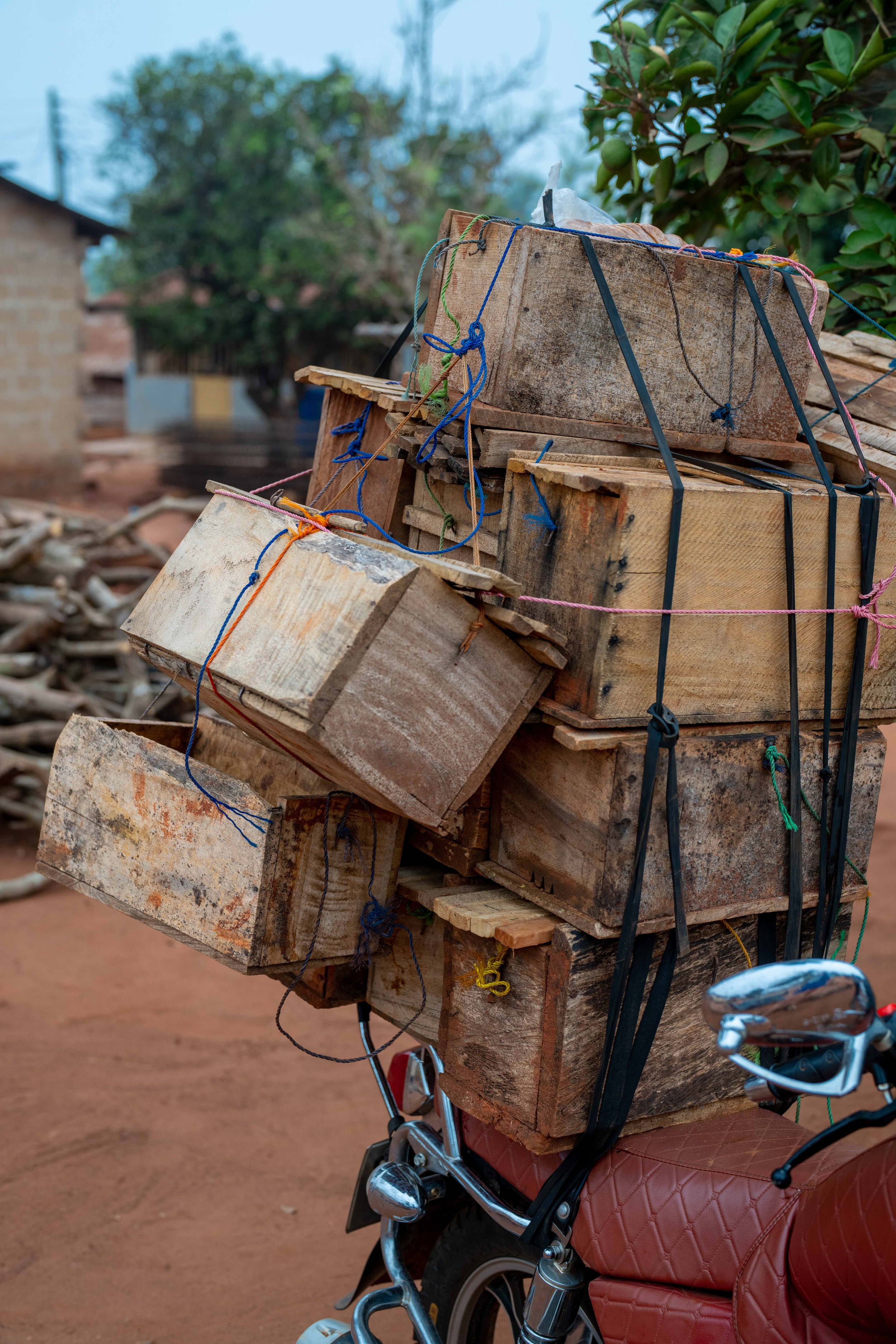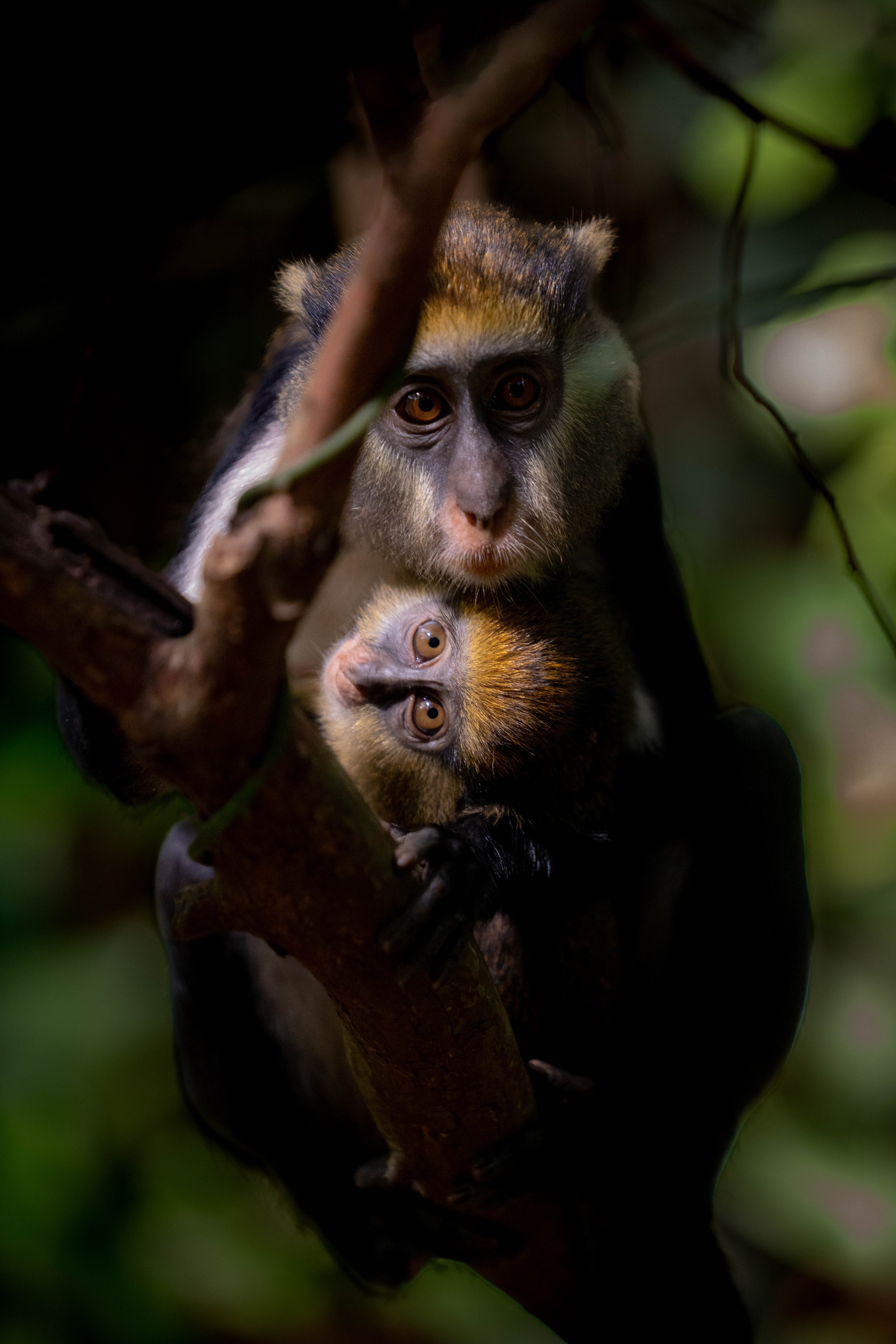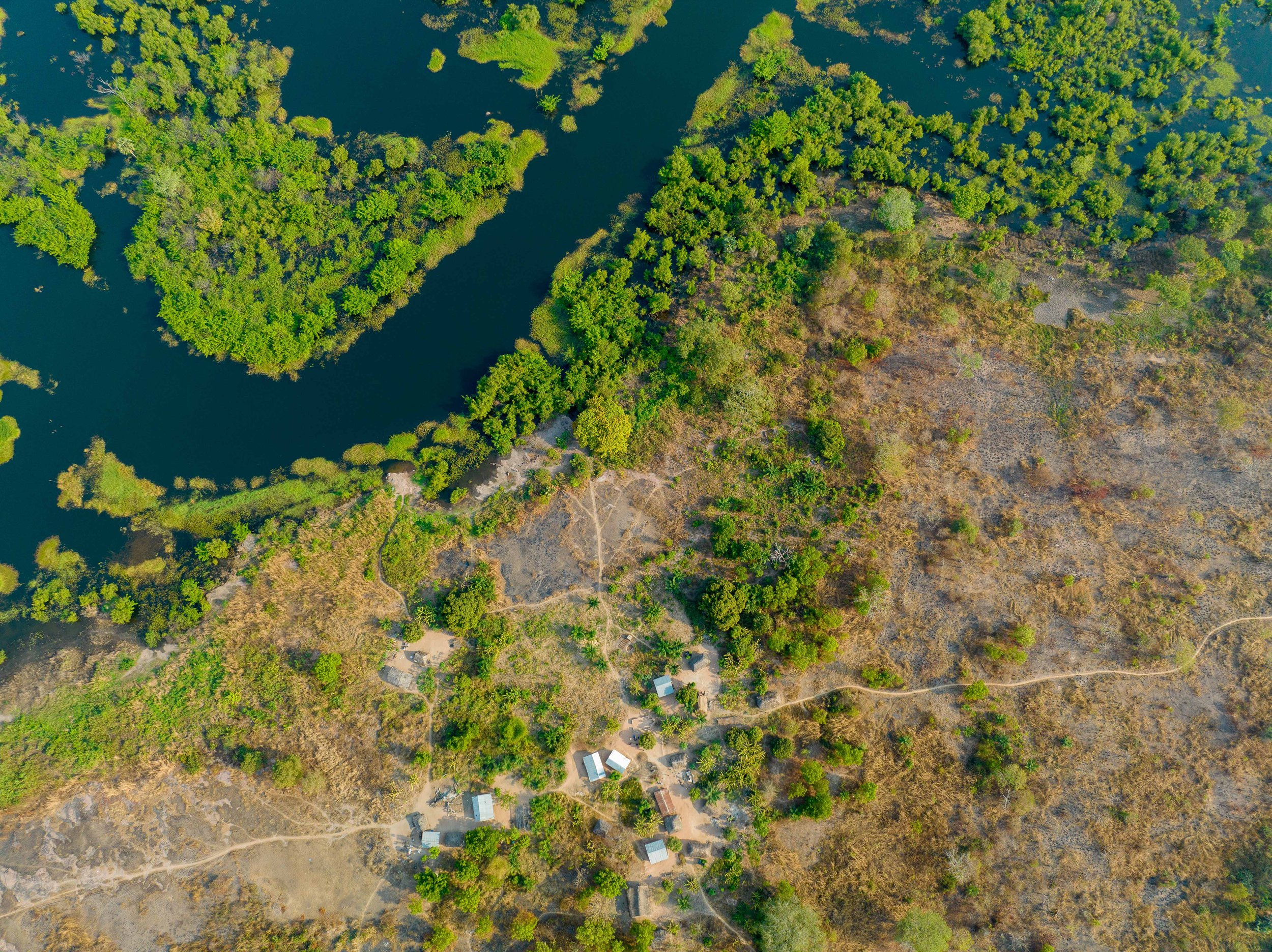
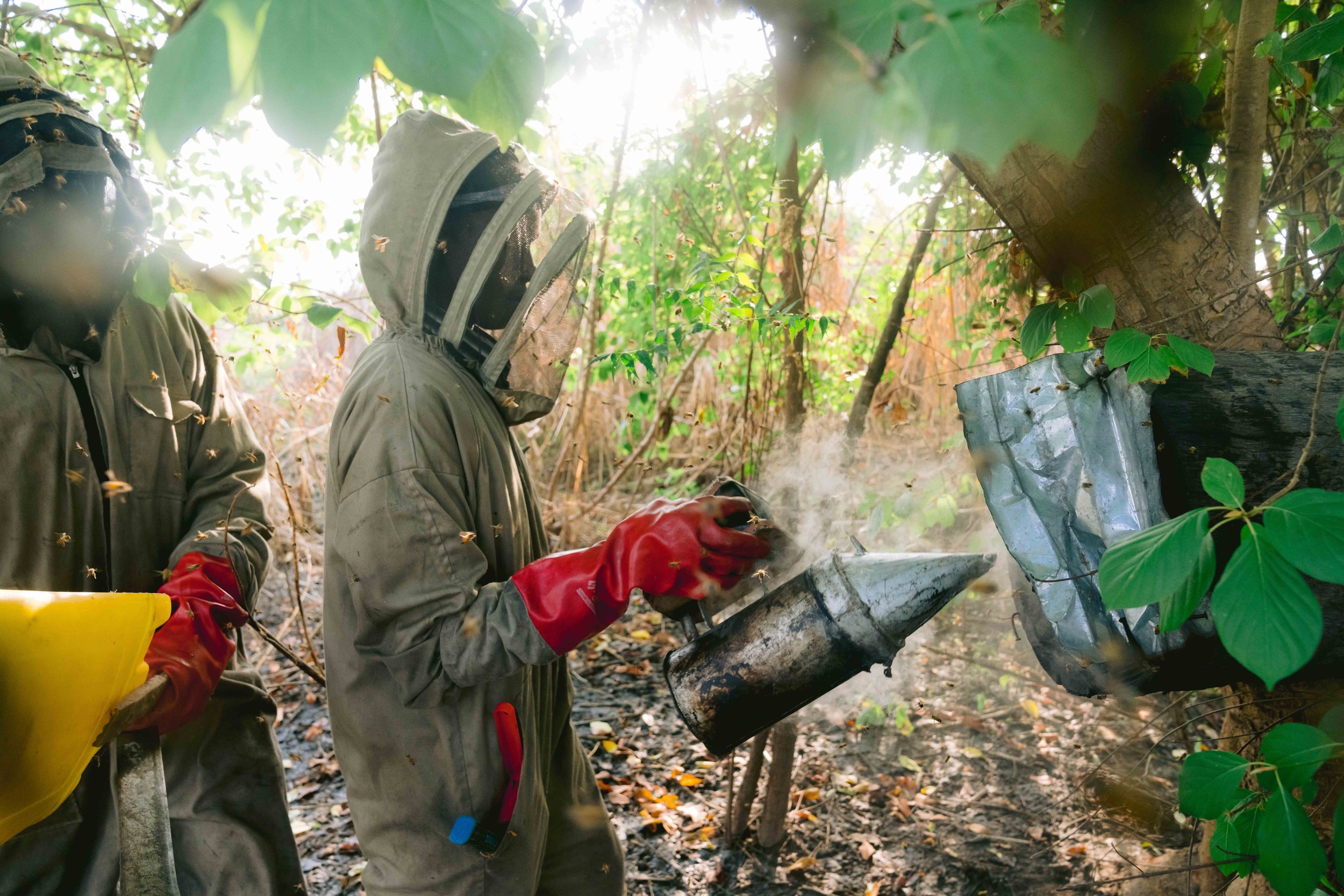
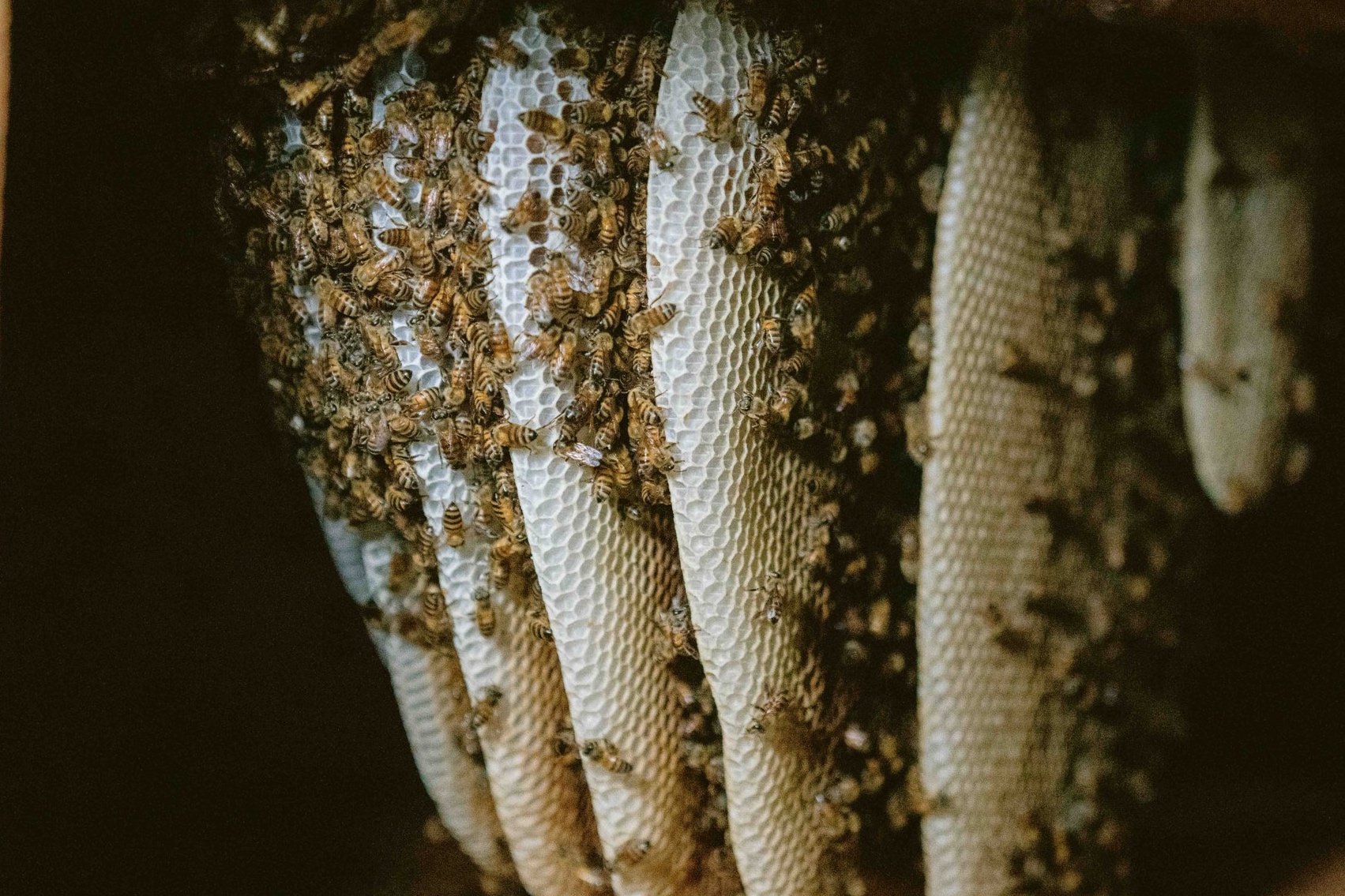
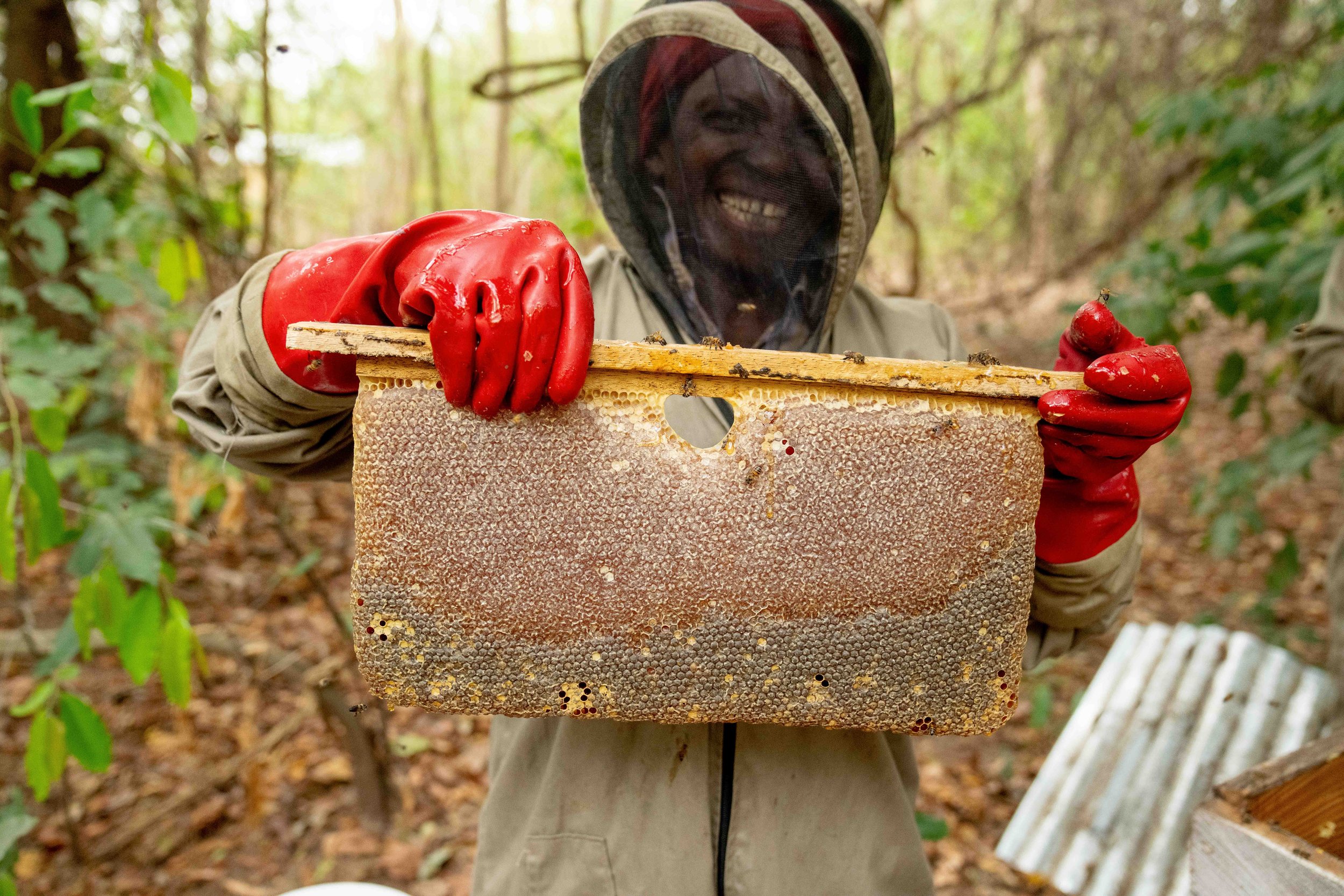
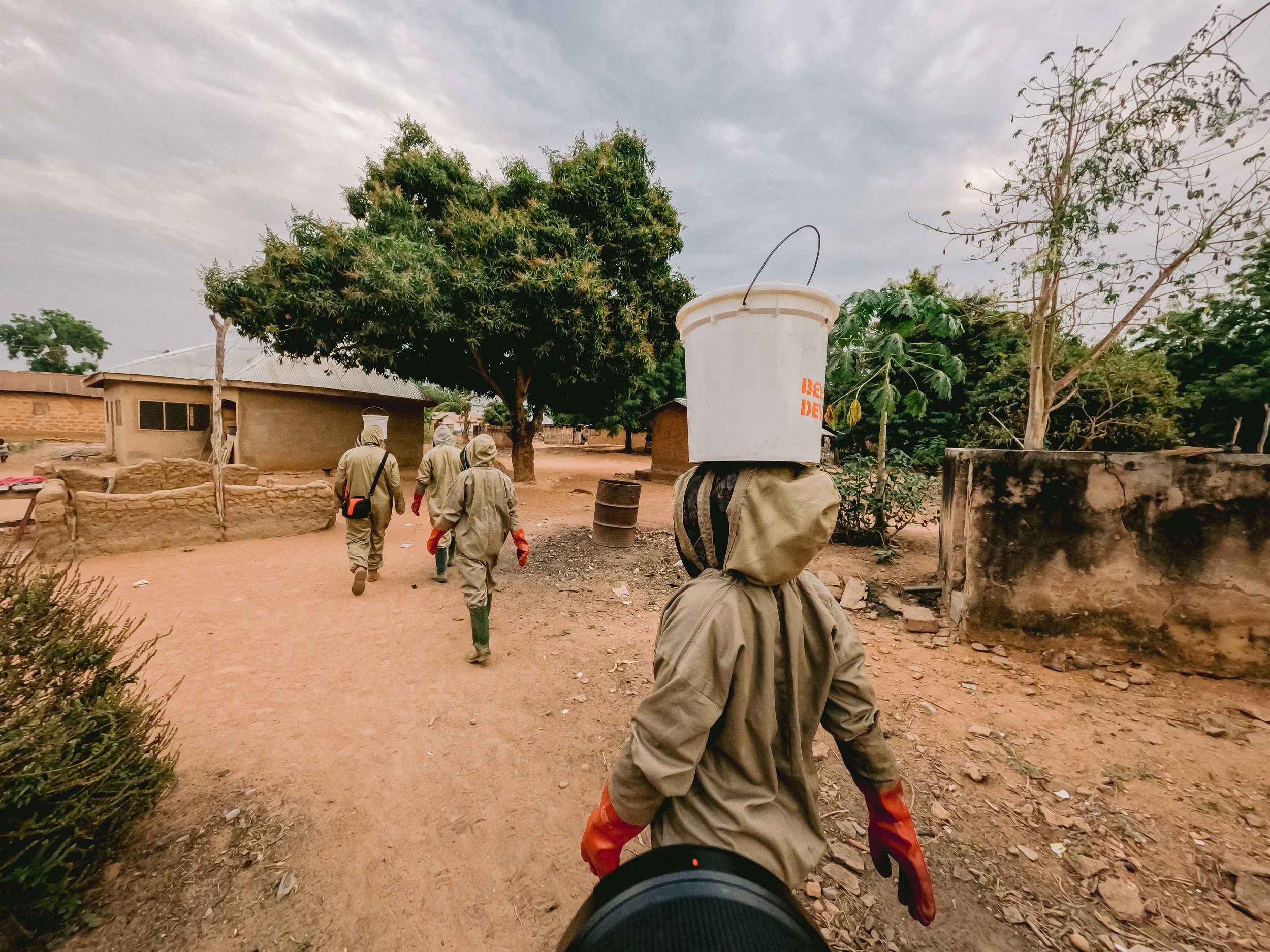
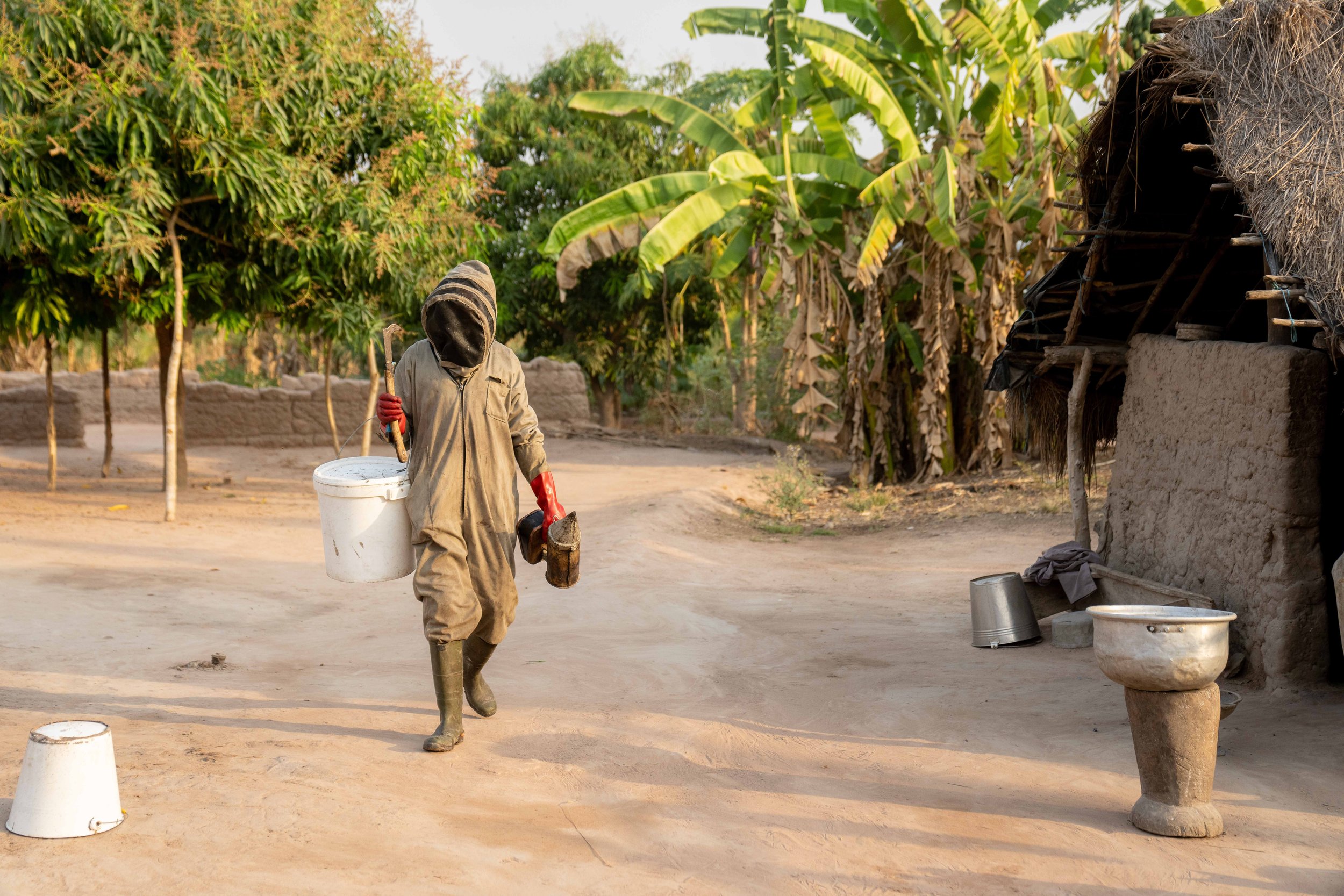
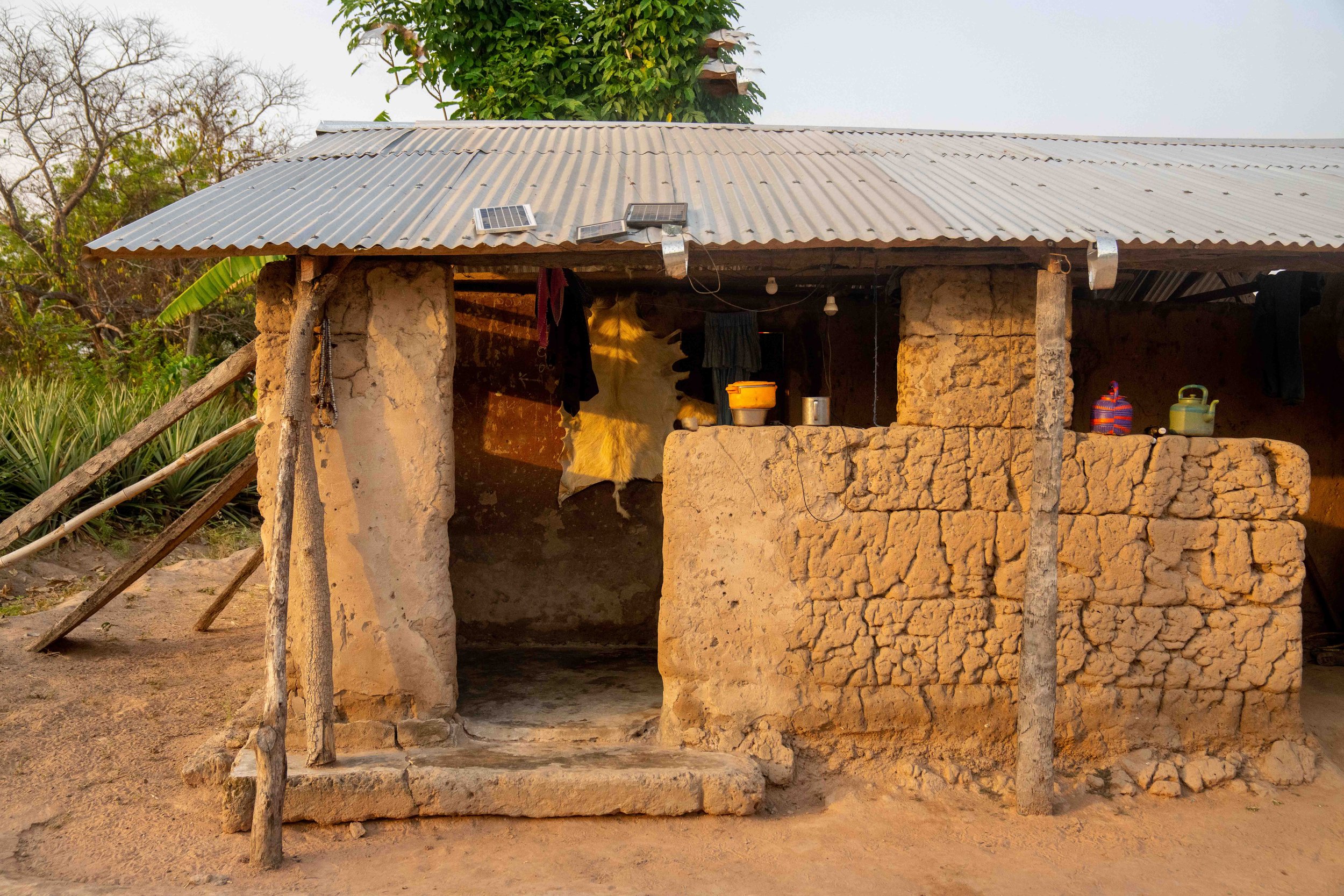
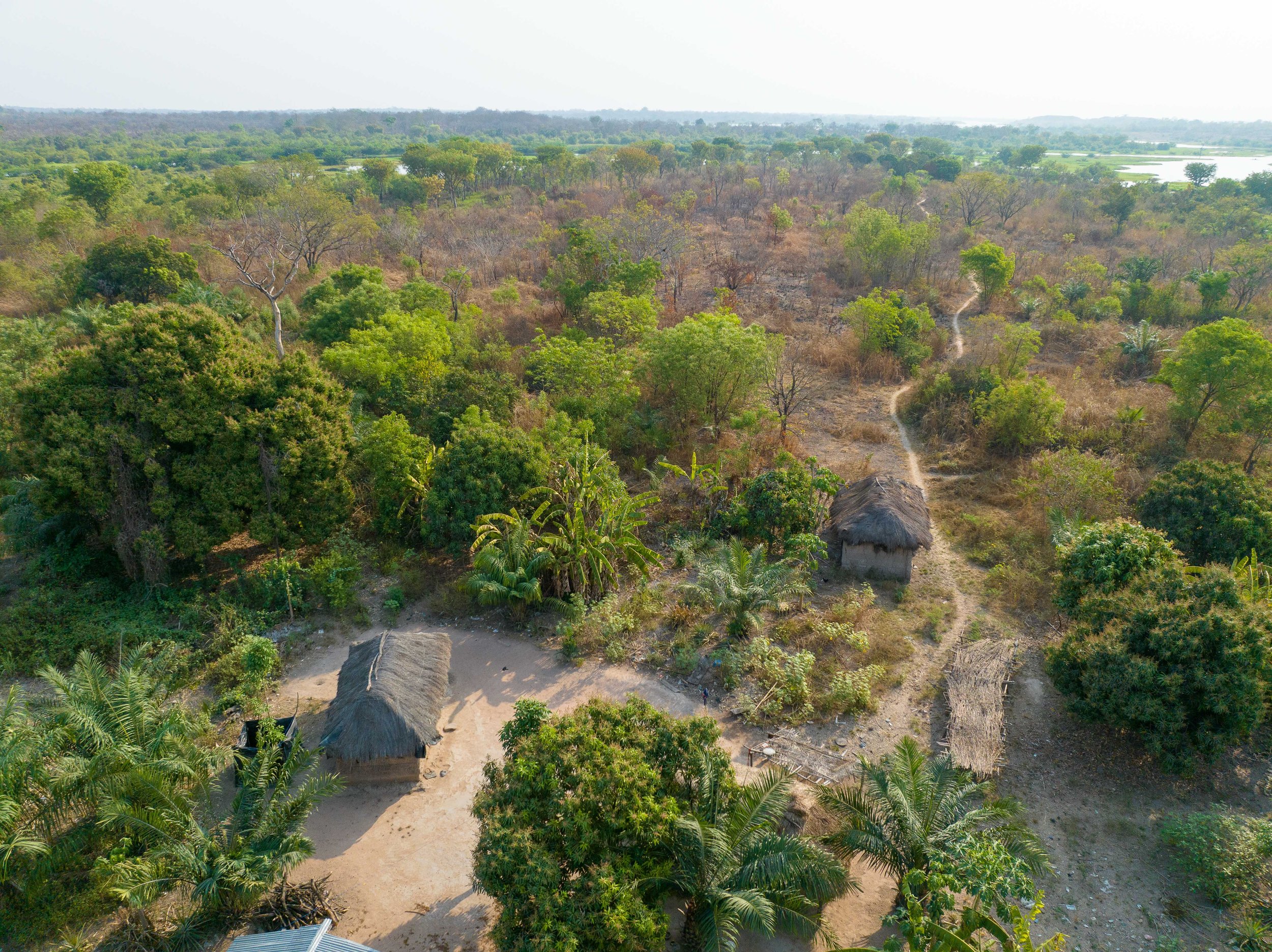
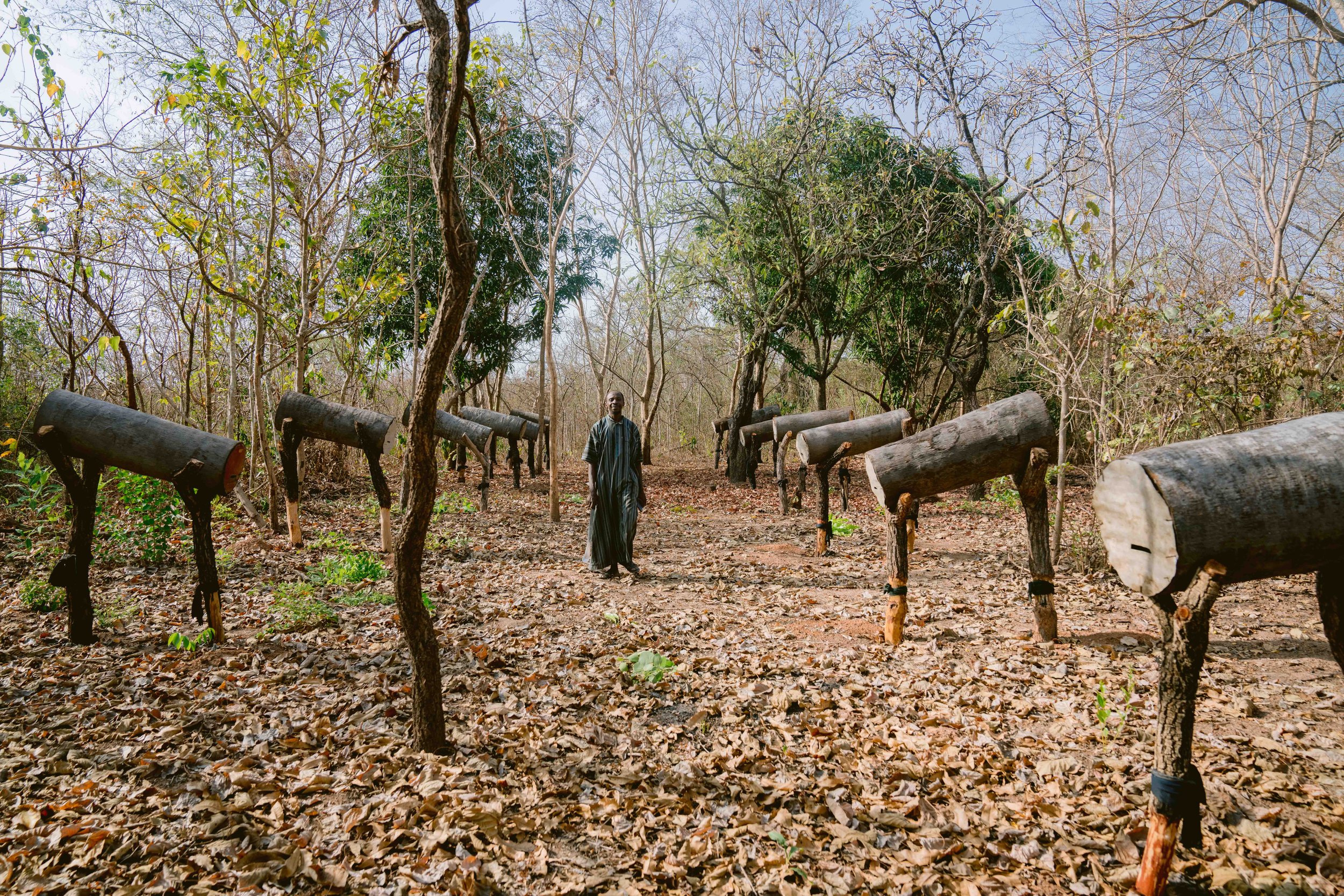
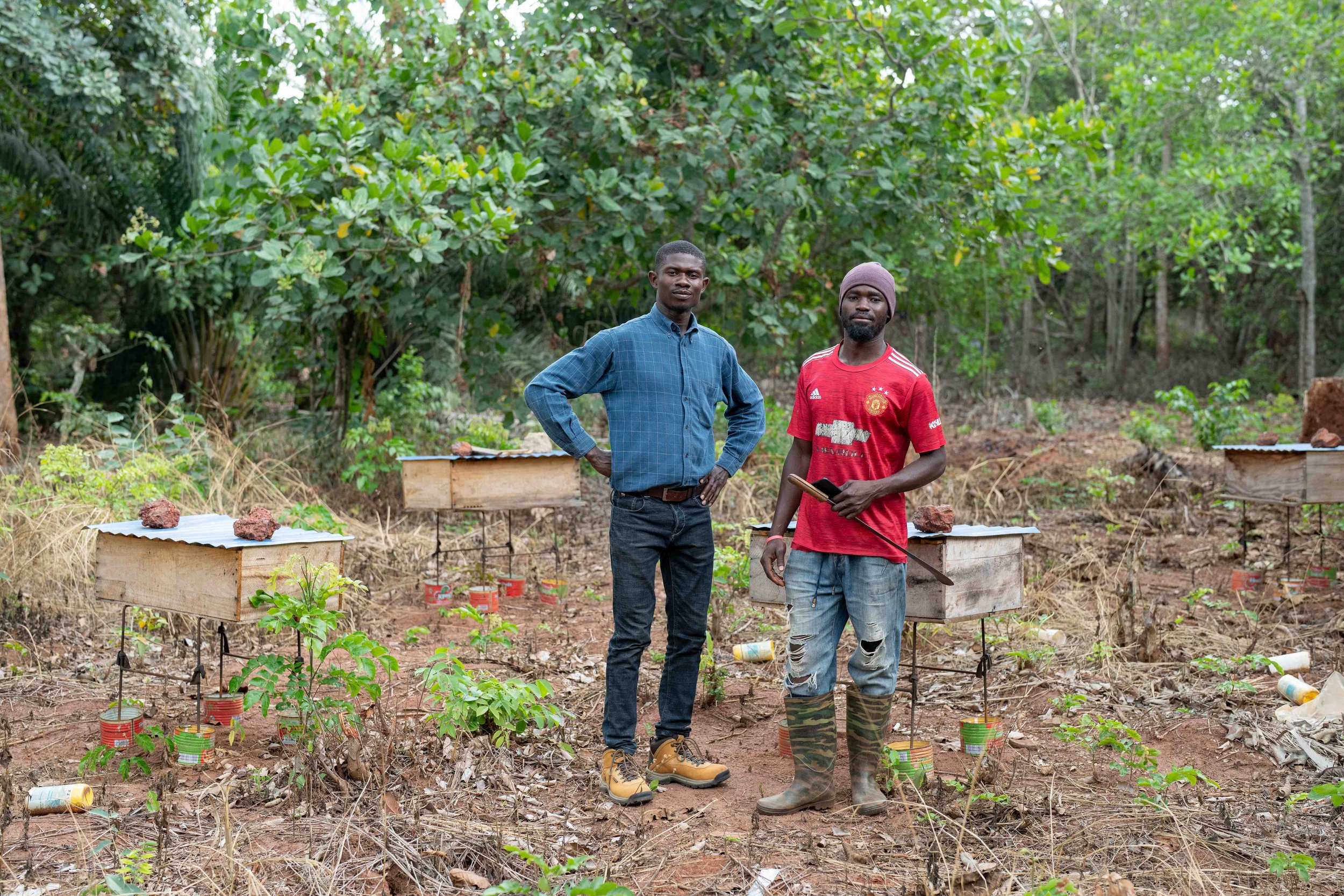
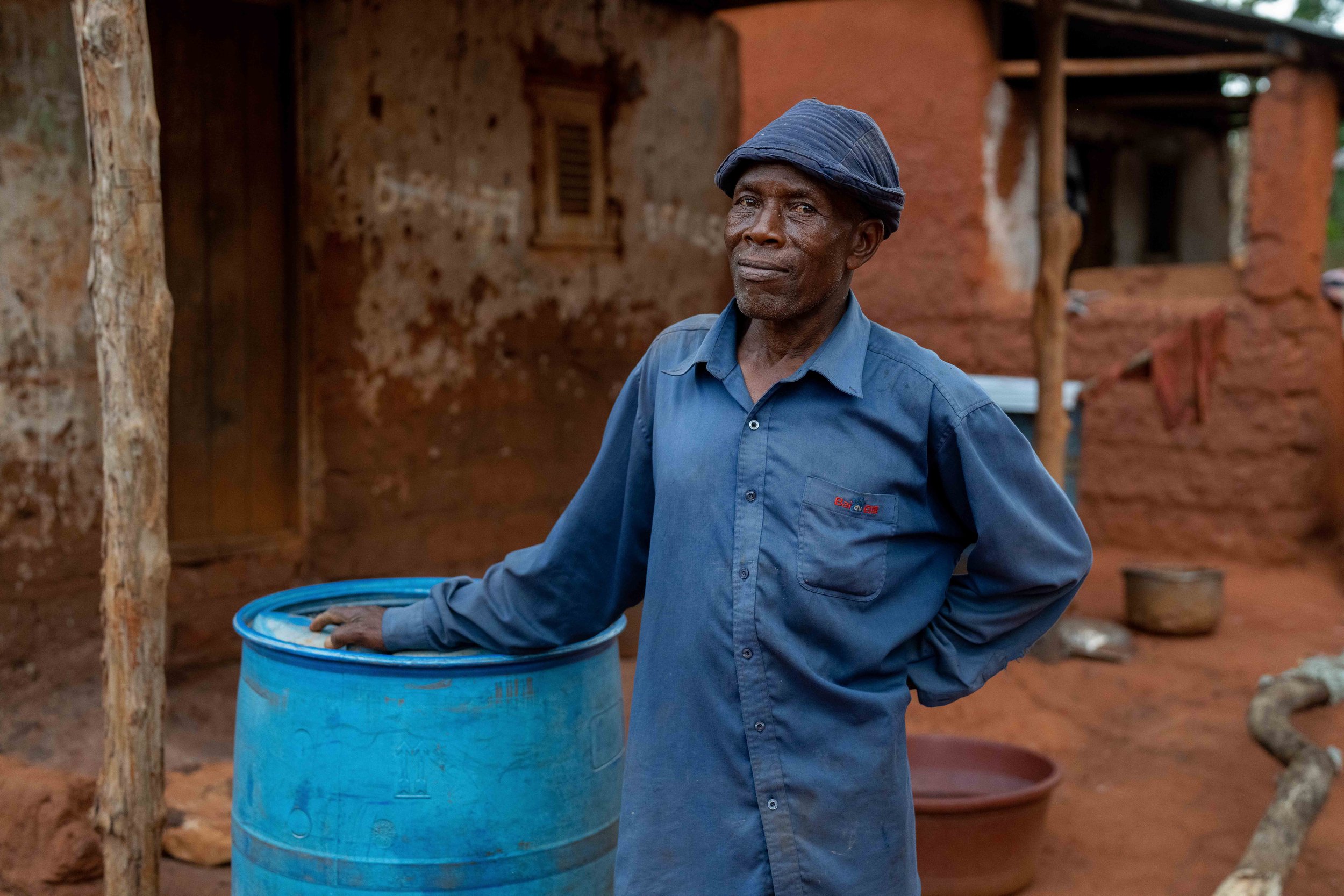


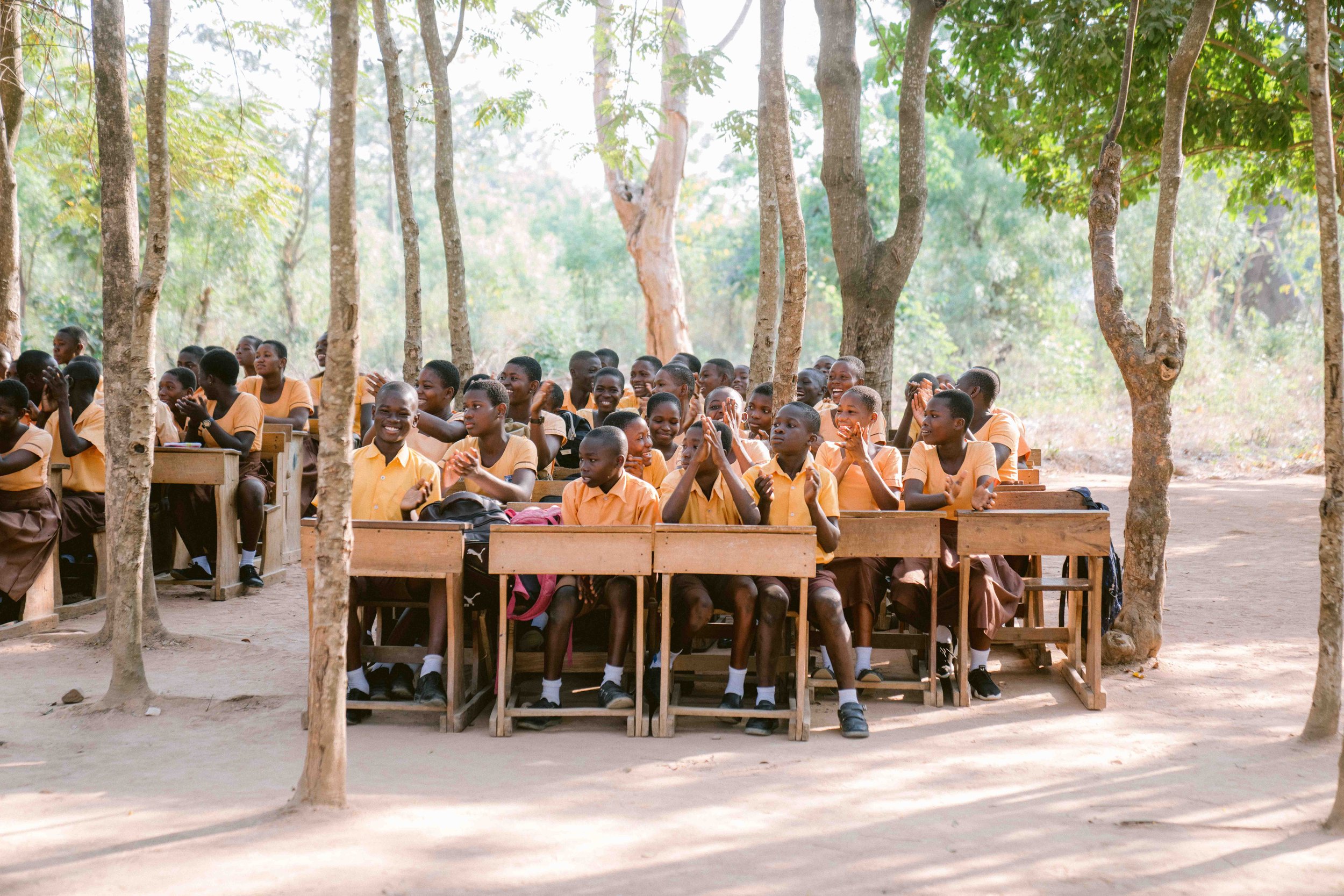
How the Art of Beekeeping is Empowering Rural Communities as a Sustainable Livelihood
WORDS BY DARSHEL DIAZ & EDITED BY NEHAA BIMAL
IMAGES BY BRIANA FORGIE
“Things used to be hard for my family, but we no longer experience that because my husband and I are both beekeepers; things are getting better for us,” says Safiatu Mamudu, who is from the Bondaso community in Ghana, Africa. Since the country’s independence from colonial rule in 1957, gender inequality in Ghana is still pervasive with low participation of women in leadership roles and in the professional workforce.
Through teaching beekeeping in low-income communities, the grassroots NGO Bees for Development is enabling Ghanaian women like Safiatu to become self-sufficient leaders and earn a living wage to take care of their families. “I have gained a lot from beekeeping as it has helped me send my kid to school. In the future, I foresee huge progress and development in our community; I see beekeeping changing our status and helping us develop as people,” she says. The organization has also begun a new program of training female beekeepers to become onsite master beekeepers to train other women groups in Afram Plains and Techiman.
Bush fires, intense and often uncontrollable due to climate change, are set off intentionally to keep the grasses down, encourage new growth or help hunters get game. Destroying bee hives and forest area, human-caused bushfires and charcoal production are both drivers of deforestation and forest degradation in the country, impacting the ecosystems within.
“Charcoal burning is very tedious work unlike beekeeping; I would be tired all the time and would have died young; sometimes I took medicine before I could sleep because of pain resulting from carrying logs meant for charcoal. Beekeeping has more future (more sustainable) than charcoal burning,” says former charcoal producer and now fulltime beekeeper Salifu. Beekeeping provides an alternative livelihood option for coal makers in Ghana to not only protect the workers’ health, but also the environment.
“Honey Hunters” - or pollinating bees - play an integral role in sustaining biodiversity on planet Earth and they need the forests to survive and thrive. They create a high-quality food source - honey, which is considered the only nonperishable food in the world with medicinal properties. The beekeeping communities on the fringes of Digya National Park in Ghana’s Eastern Region are quickly realizing the value of their forests and are becoming their protectors. Bees for Development is working to restore the forests, to help support a complex biodiverse wildlife habitat.
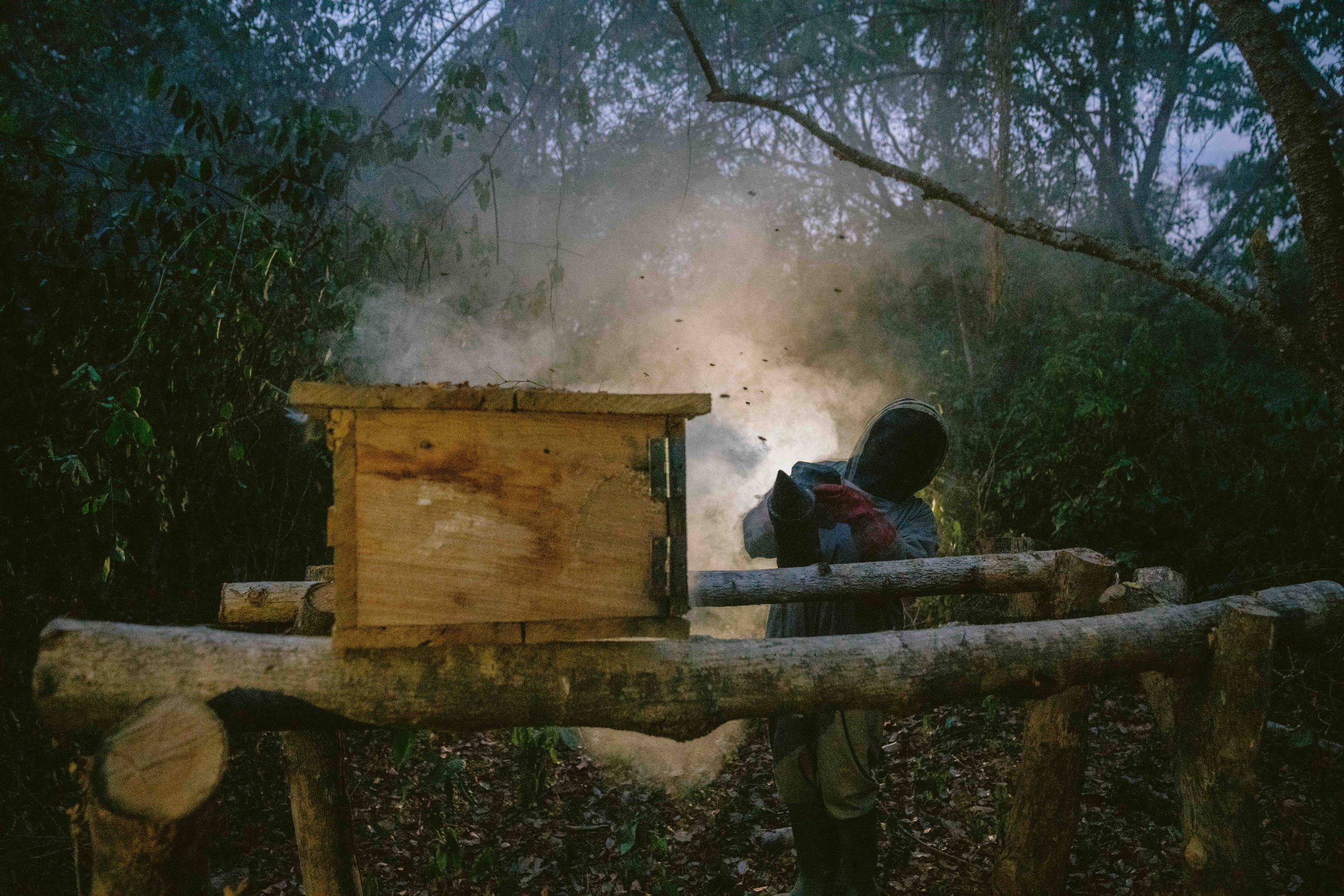
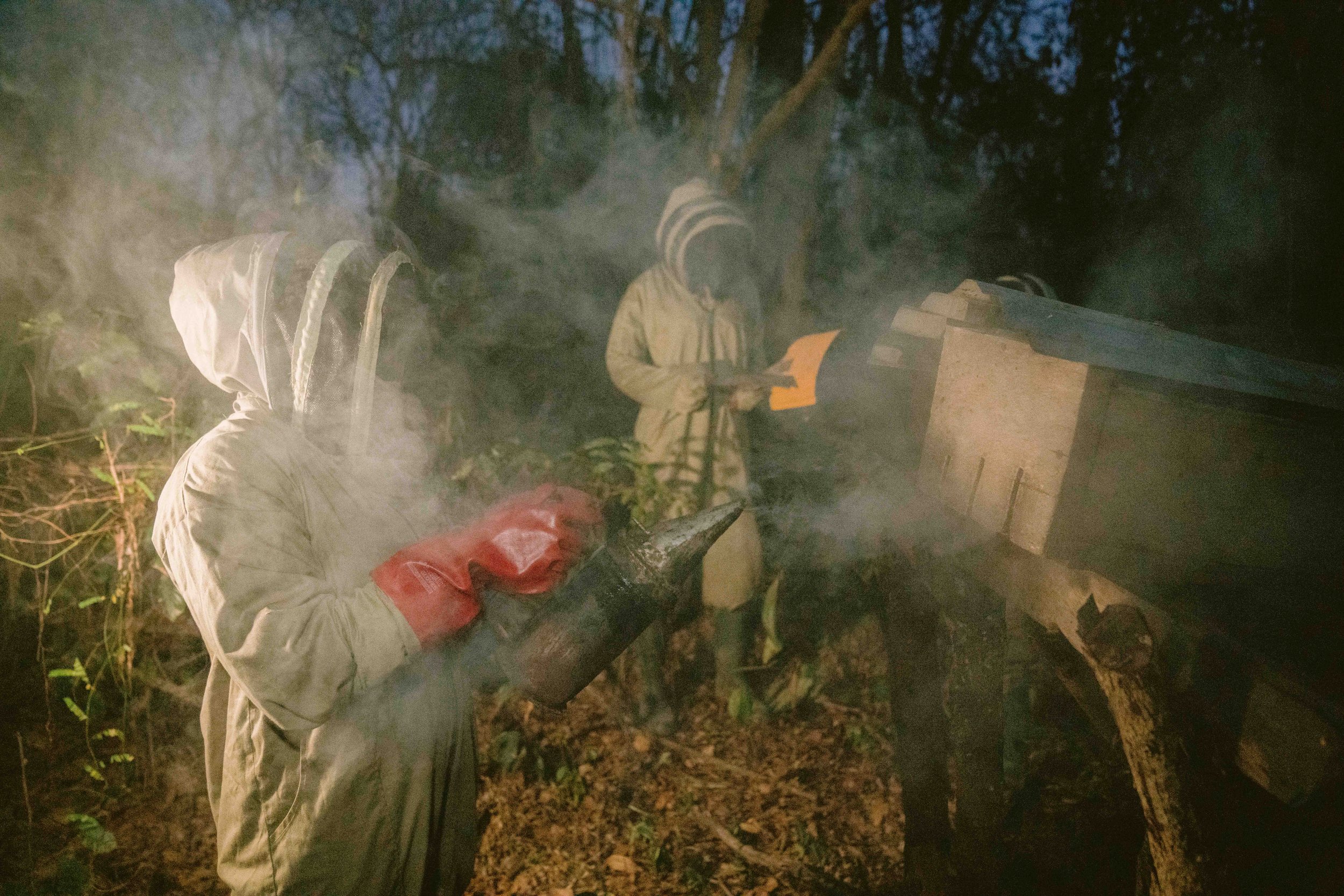
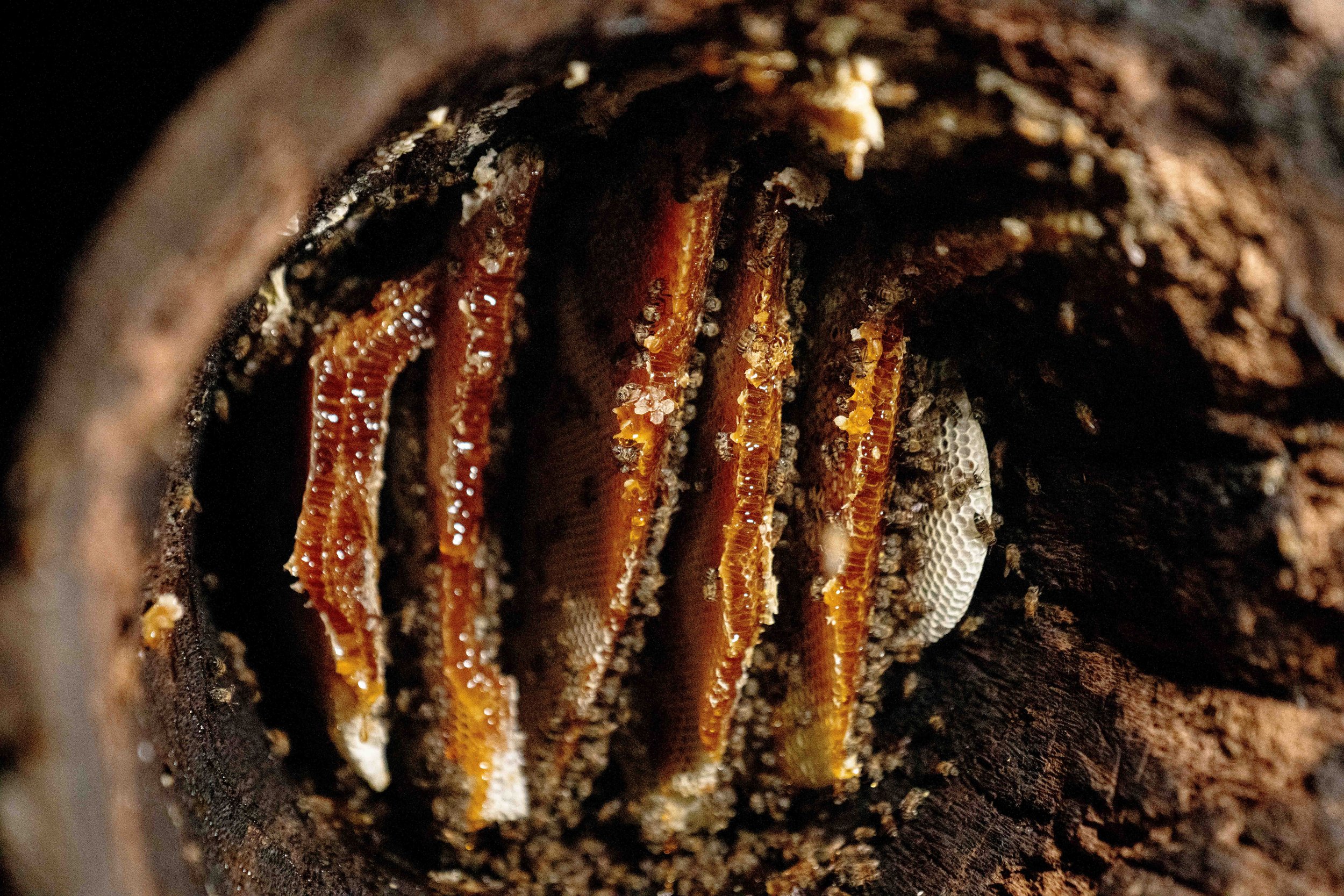
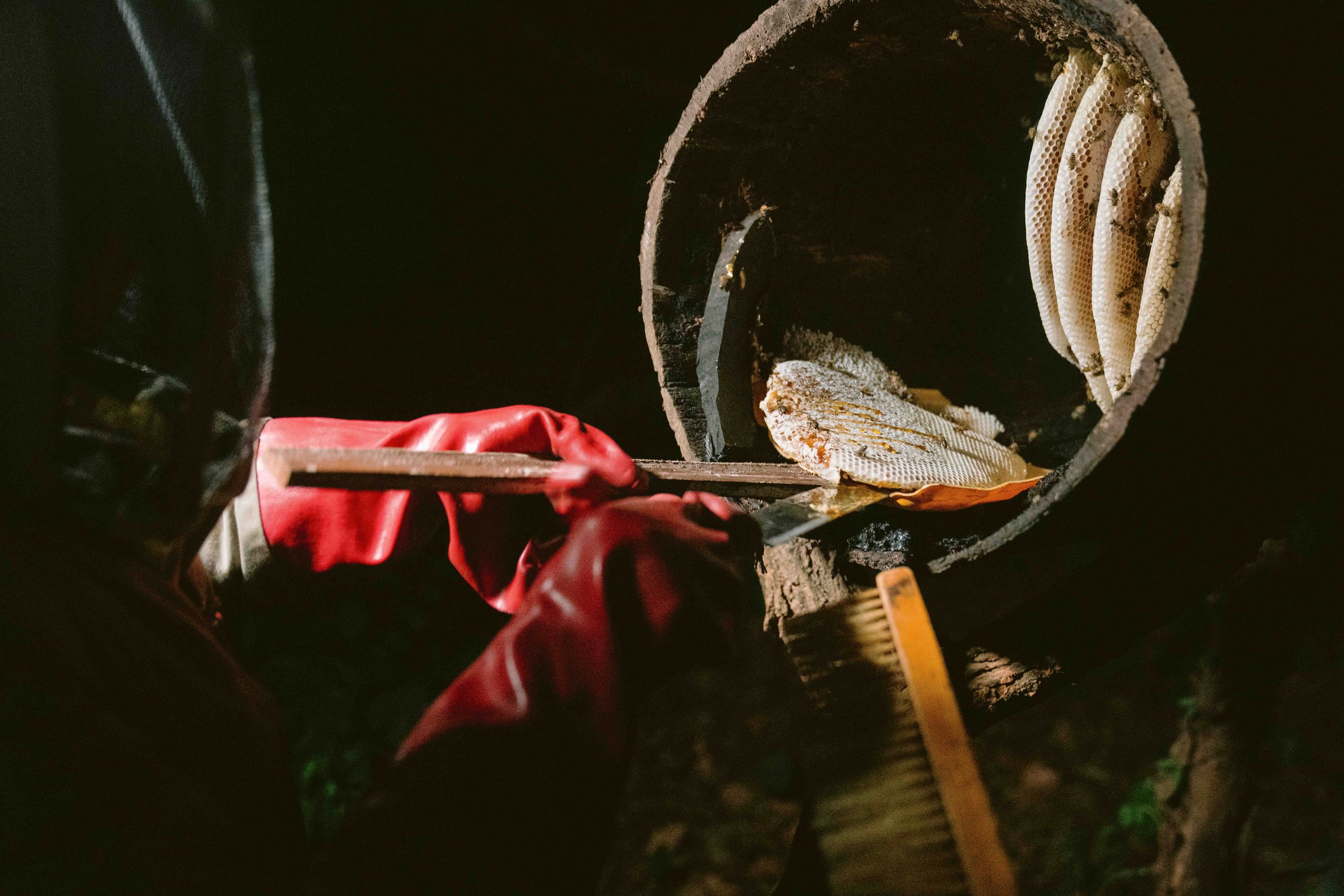
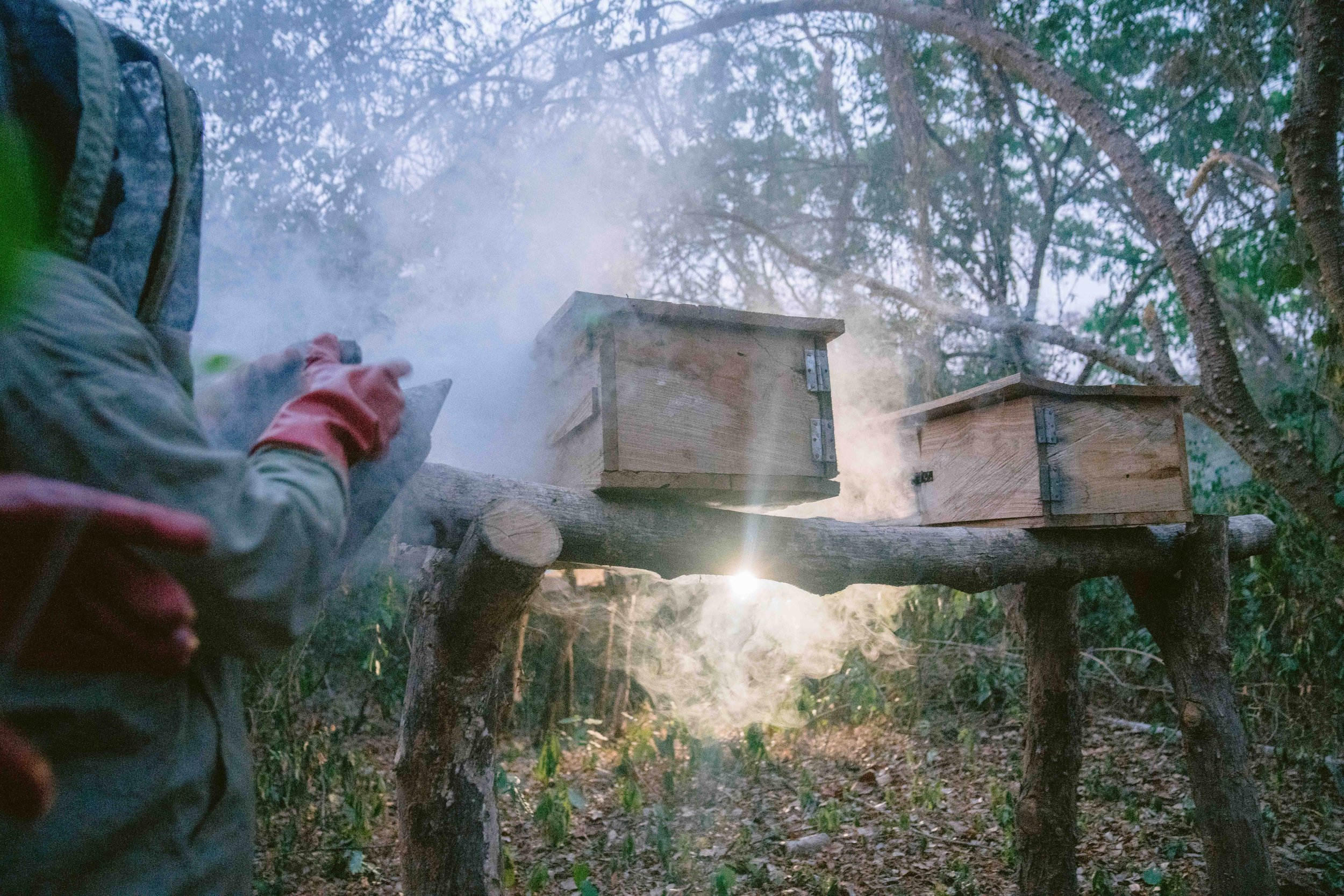
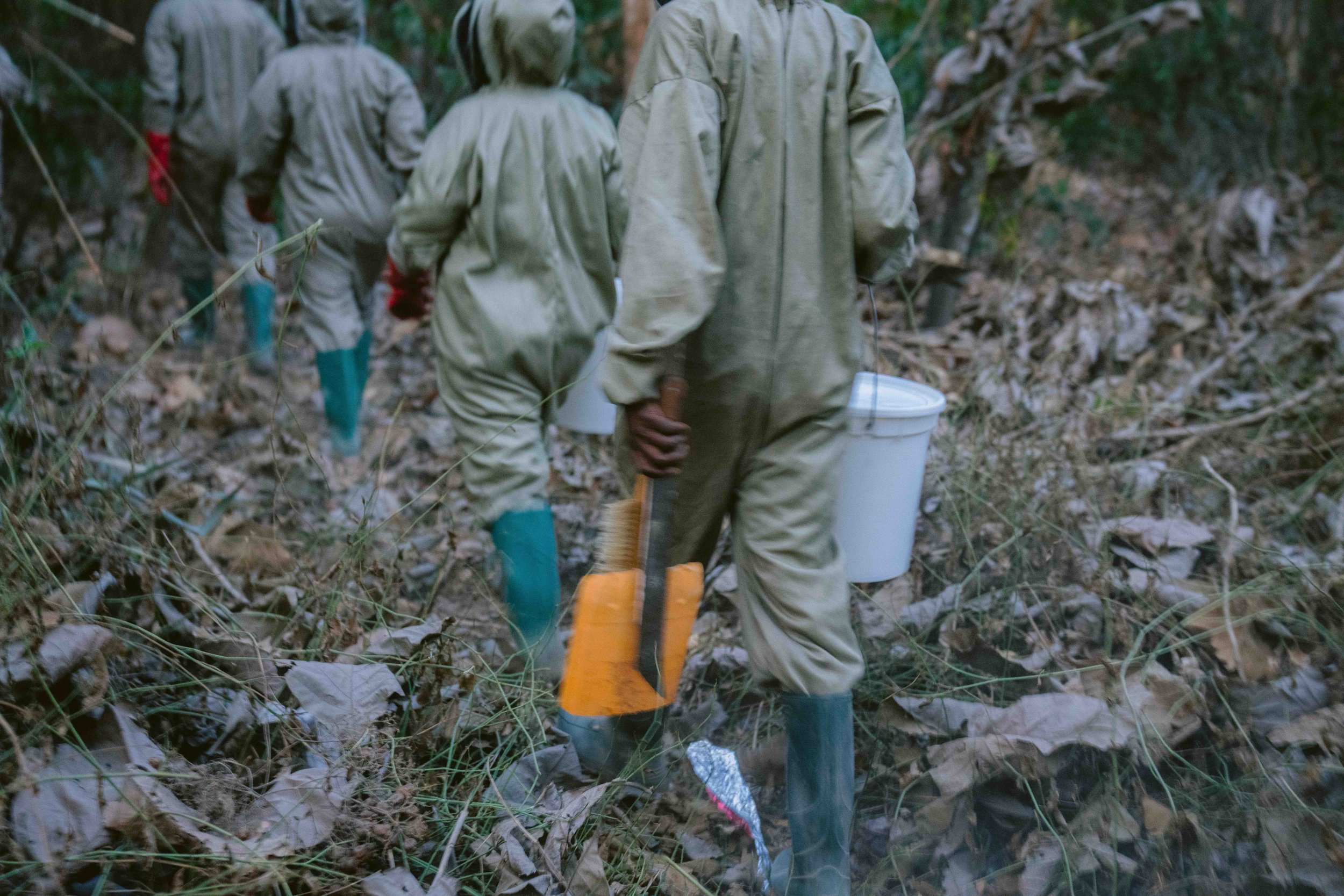
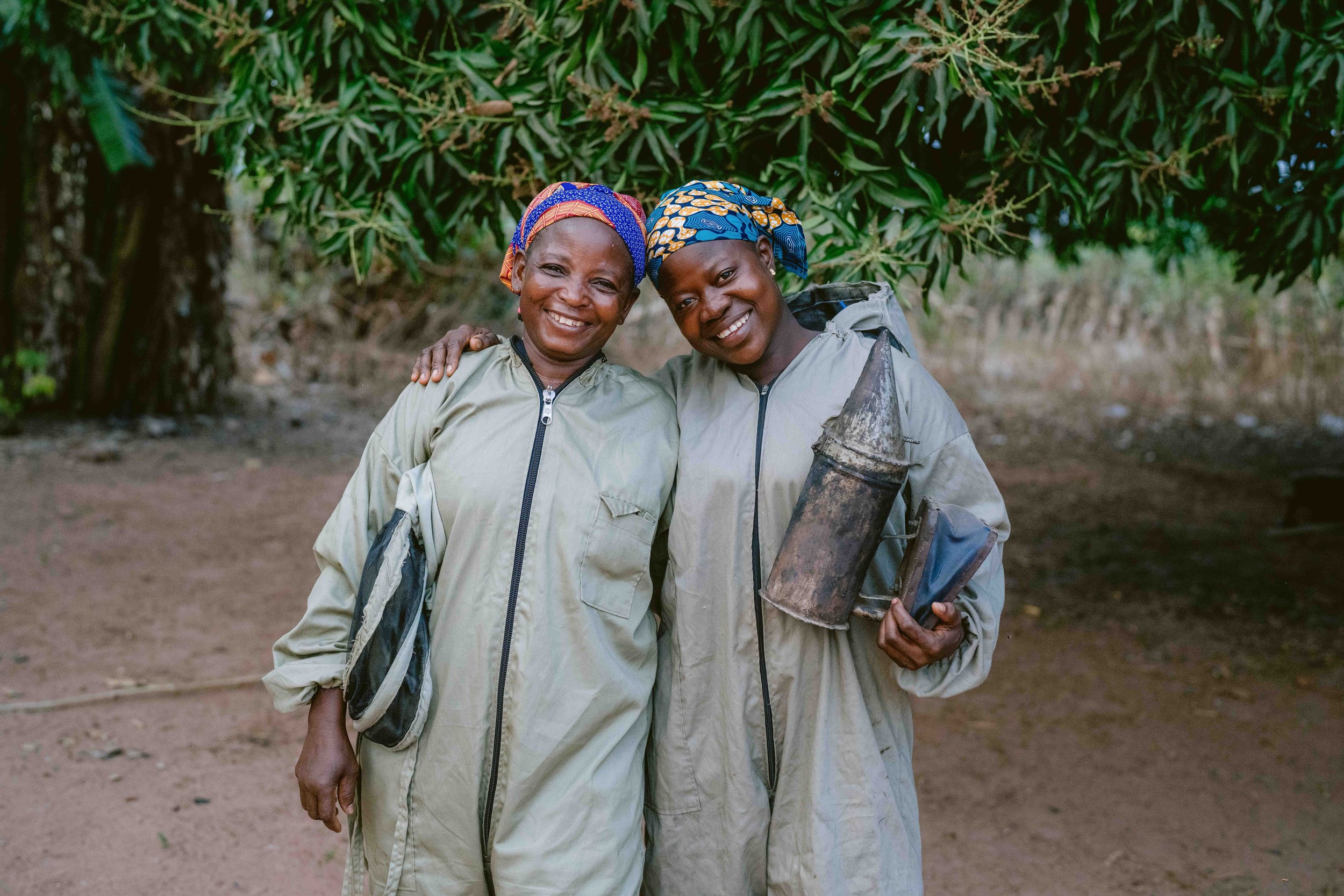
The mission of Bees for Development is to teach beekeeping in rural areas to increase economic sustainability; but that mission consists of many layers. Besides conservation, another layer is economic education. They are teaching entrepreneurship, planning, business communication, organization, and basic business economics. Issac, who teaches beekeeping in Techiman, is proud of the financial success of his trainees and loves to hear how the new beekeepers are spending their newfound profit. He is curious about all the impact and progress that can be made with new skills and knowledge: “I love getting to know how they are spending the money. I am so proud of them. The beekeepers are seeing the differences in their lives.”
Local wildlife. Villagers believe that the monkeys are related to their ancestors so they protect them. The surrounding forests are also all protected. The monkeys are revered and have their own cemetery in the sanctuary.
In addition, they have started “Buzz Clubs,” which teach beekeeping to middle school students. Empowering the next generation, these classes give students a solid trade skill that will aid their economic future and they train hundreds of children to value and work within the field of conservation.
In the Techiman district, cashew farming is the primary crop; adding beekeeping not only helps with the pollination of the cashews, but also provides another financial opportunity for the farmers. Bees for Development has a successful teaching model where they have trained master beekeepers and have coordinators that train and support new beekeepers. This apprentice model is sustainable as new beekeepers are trained to keep bees, build hive boxes and process honey and wax. The knowledge is spreading and the new beekeepers are experiencing financial success. Former beekeeping trainee Zinatu from Bondaso was motivated by the financial gains she made in her first harvest. “This was a game changer for us as it helped my husband buy a tricycle which earns us additional income,” she says.
There is a lot of pride amongst the beekeepers whilst collecting their honey-filled buckets. Gideon, a passionate beekeeper who trains people in the Afram Plains, lights up when he sees the people he has trained getting excited about their bees and the upcoming honey harvest. “It’s all I have dreamed of. There are occasions when I teach them and we solve a problem together. I enjoy it so much.”
You can support Bees for Development by donating or by enrolling in their Sustainable Beekeeping Course.






